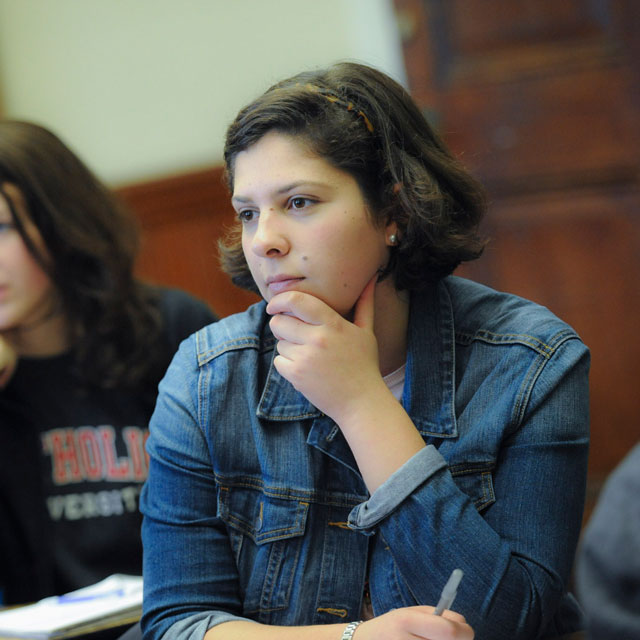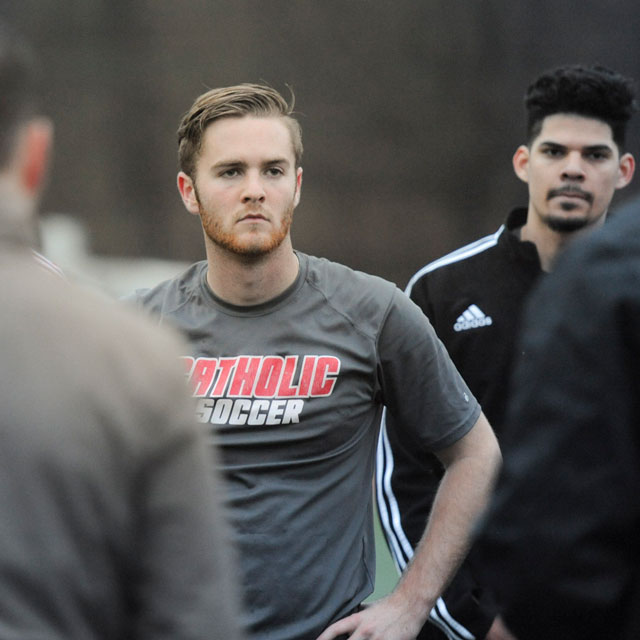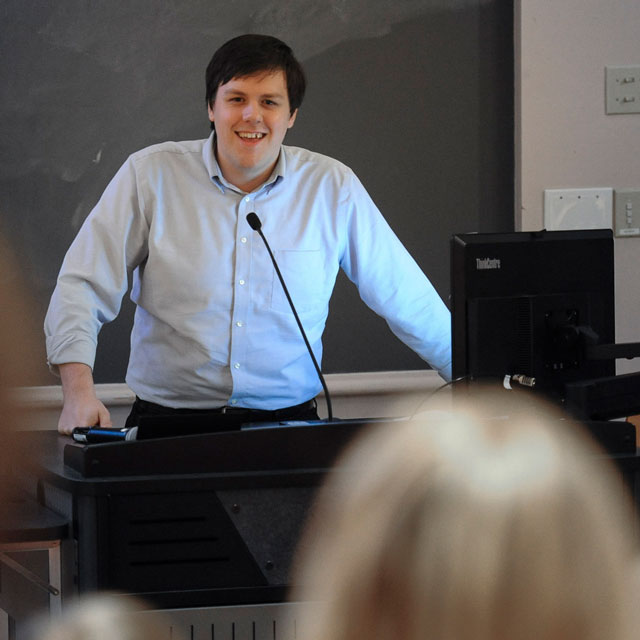
Freshman Danielle Schirripa was home in Lexington, Mass., for winter break when she got an email from Angela Knobel, the professor who taught her Honors Program philosophy course that fall. Knobel wished Schirripa a merry Christmas and invited her to chat once the spring semester began.

Schirripa, who started school as a double major in mathematics and elementary education, met with Knobel in her office in January.
“She sat me down and said, ‘I want you to consider studying philosophy. I see you have a lot of potential.’ I was really honored that she took the time to tell me that,” recalls Schirripa. “In that moment, I felt so grateful for the Honors Program because I was in a setting where professors really took interest in me and cultivated me.”
Thanks to Knobel’s encouragement, Schirripa is now a double major in philosophy and mathematics. The University Honors Program at Catholic University provides opportunities for students to build relationships with faculty through small, seminar‐style classes; research opportunities; advising and mentoring; and informal learning opportunities outside the classroom.
“We take the best students that we have at CUA and we put them together with the best research faculty,” says Peter Shoemaker, director of the Honors Program. “We want [students] to know the best of what there is to know about the past, the present, and the future of our society and the Catholic Church.”

Jack Traxler has performed at the Kennedy Center. Twice. The sophomore vocal performance major came to Catholic University because it enabled him to pursue the three things most important to him: a rigorous education, a chance to study and perform music, and the opportunity to compete on an intercollegiate soccer team.
The staff and faculty in the Honors Program have worked with Traxler to make sure he can meet all the requirements of the program while balancing demanding music rehearsal and soccer practice schedules. “One of my favorite things here is how much my teachers encourage me as a student‐athlete,” says Traxler.
Learning also extends to the residence halls. The Honors Residential Community enables students to live with other honors students so that classroom discussions can continue informally or in study groups. The Honors Program also brings faculty into the residence halls weekly for symposiums, discussions, and tea.

Recently sophomore Nicolas Novak organized a symposium for Honors Program students that featured a discussion with his faculty mentor – Professor of History Katherine Jansen – over a home‐cooked meal prepared by Novak.
“It was a great moment to sit down after cooking for almost six straight hours,” Novak recalls. “I was exhausted but I looked up and everyone else was smiling and eating and having a great time. It was wonderful to know that I got to make that happen.”